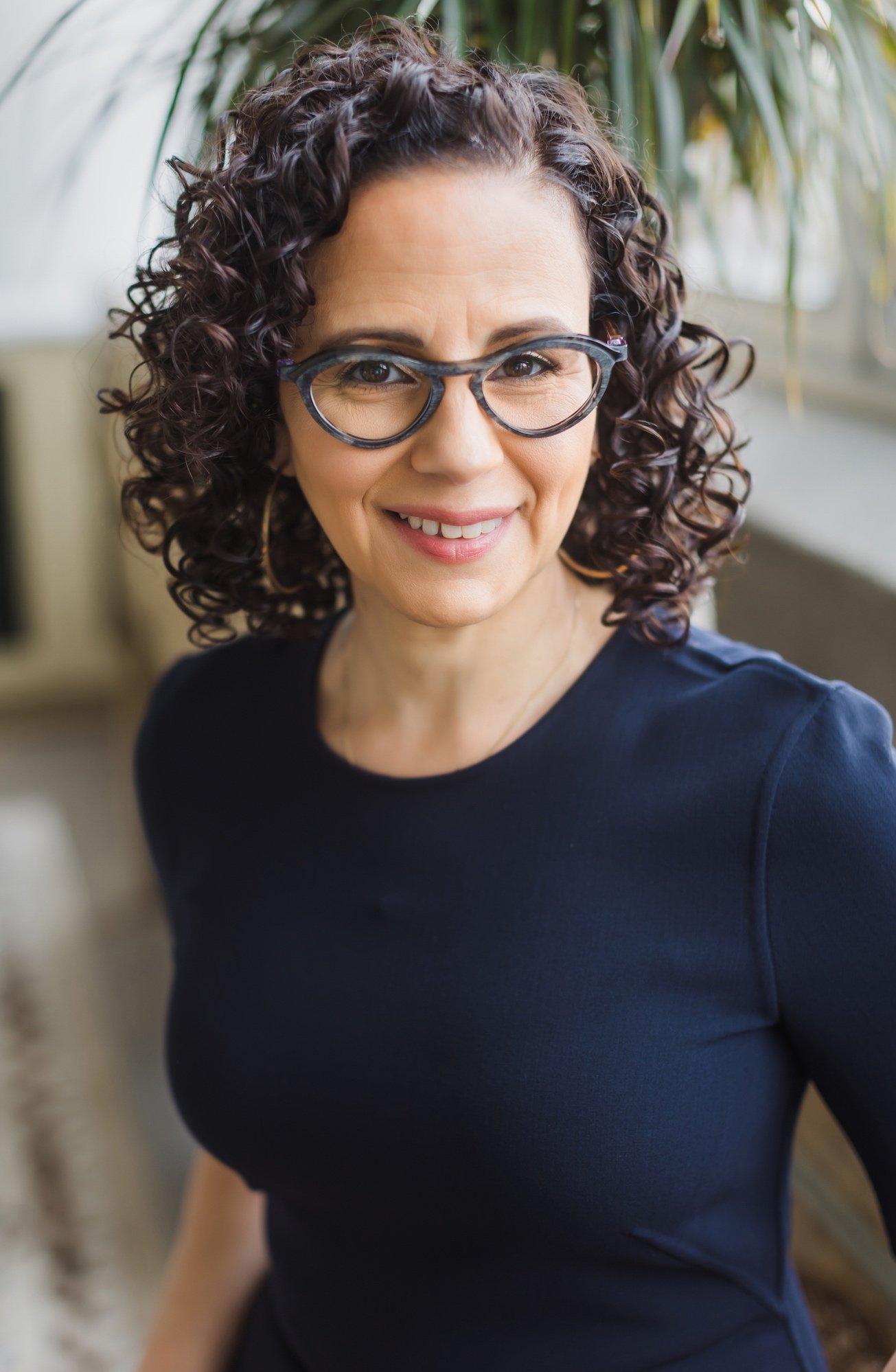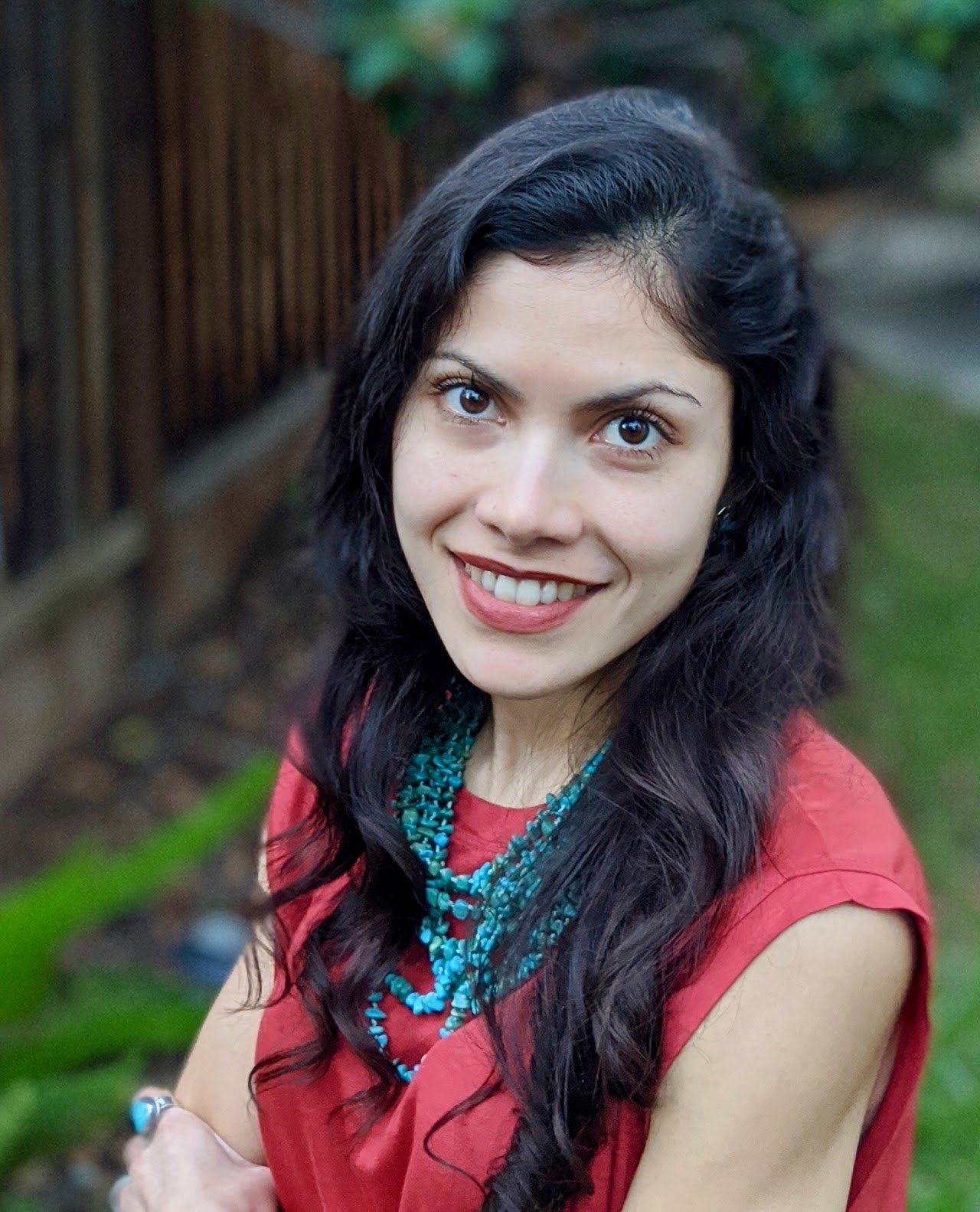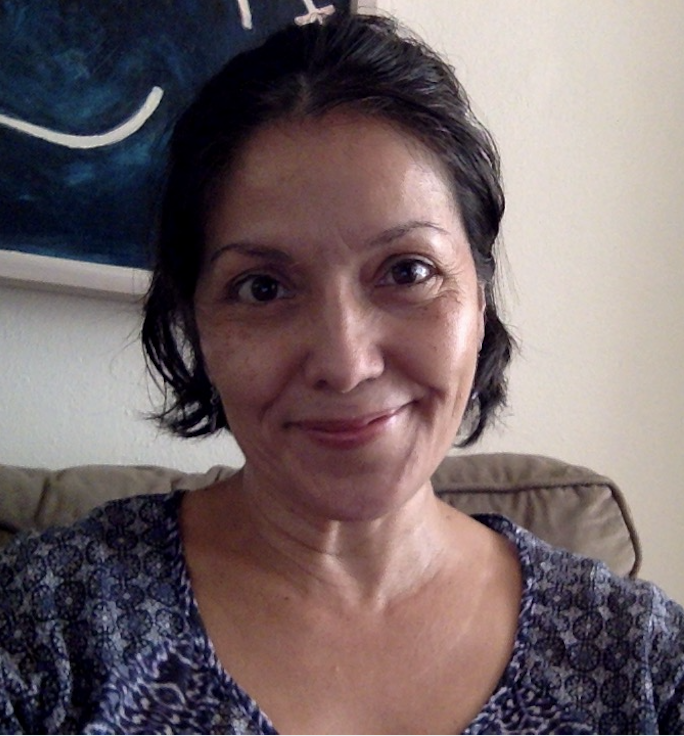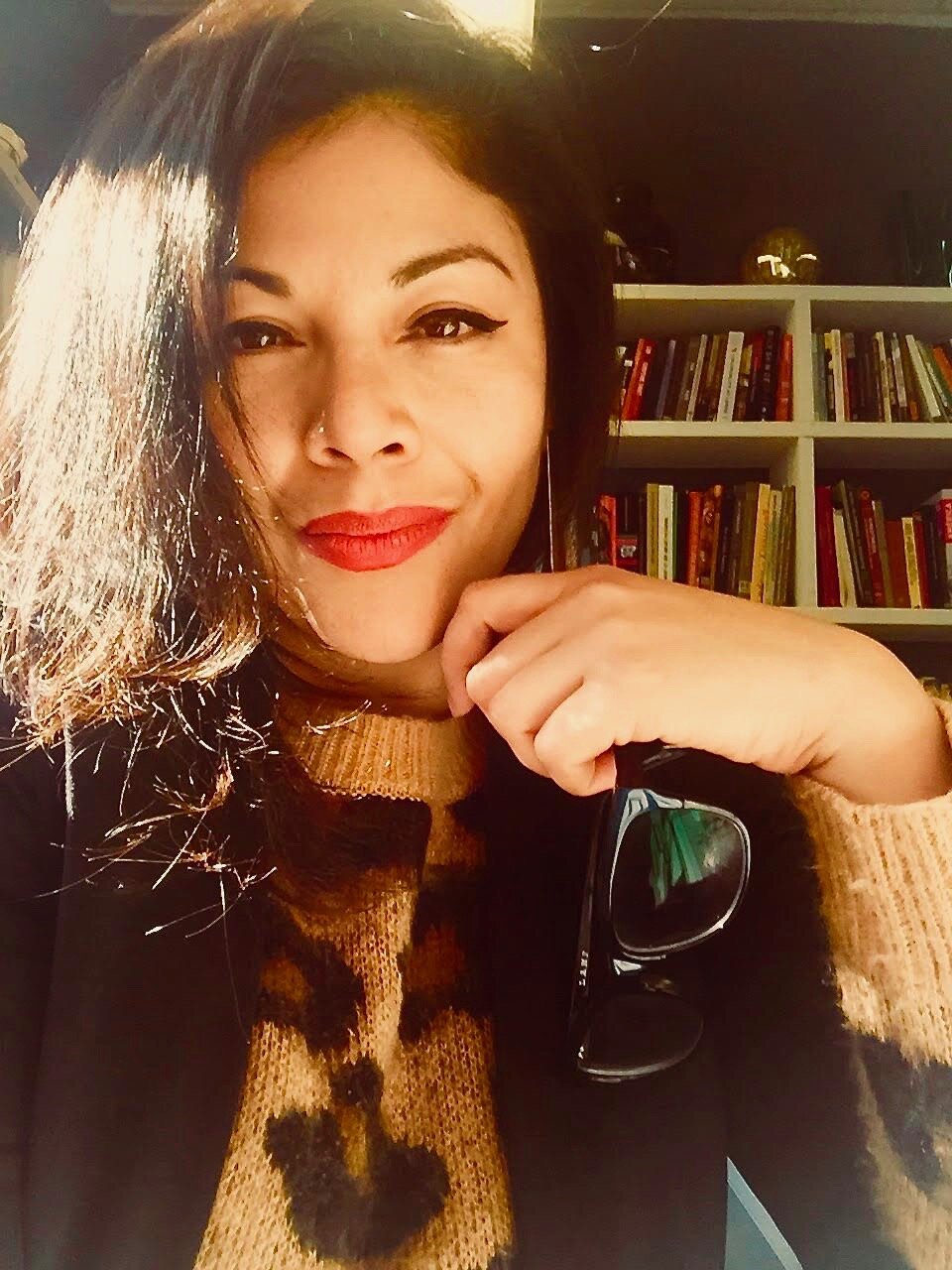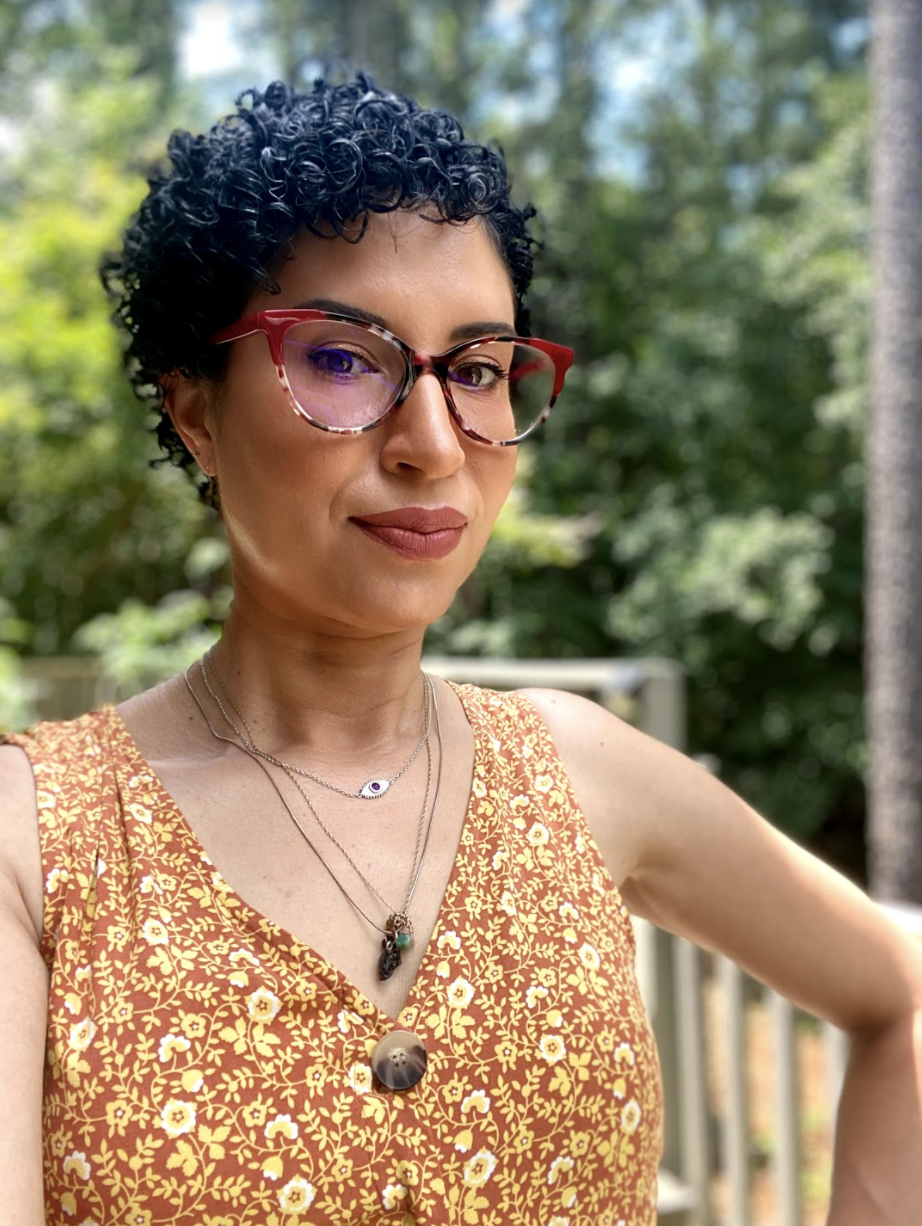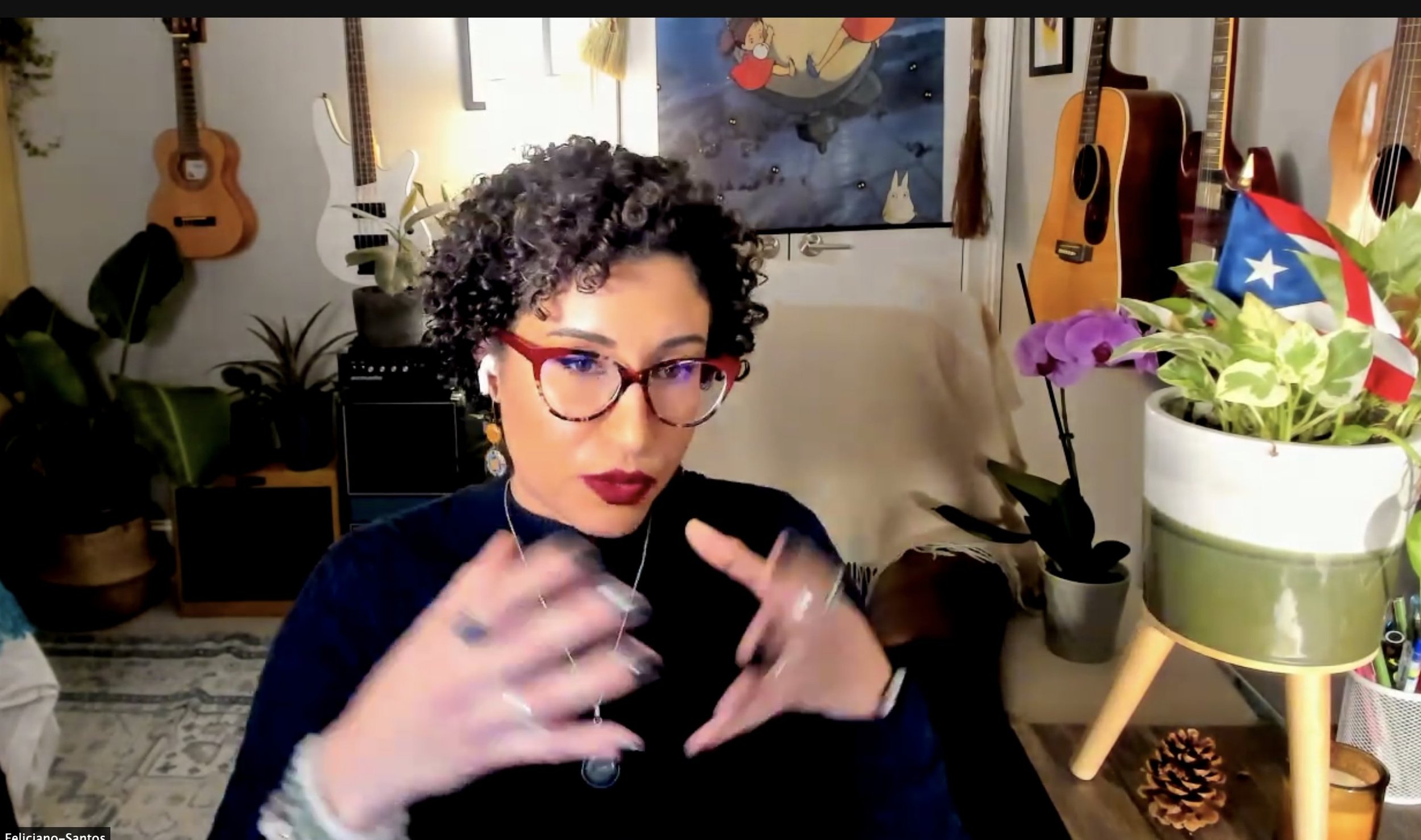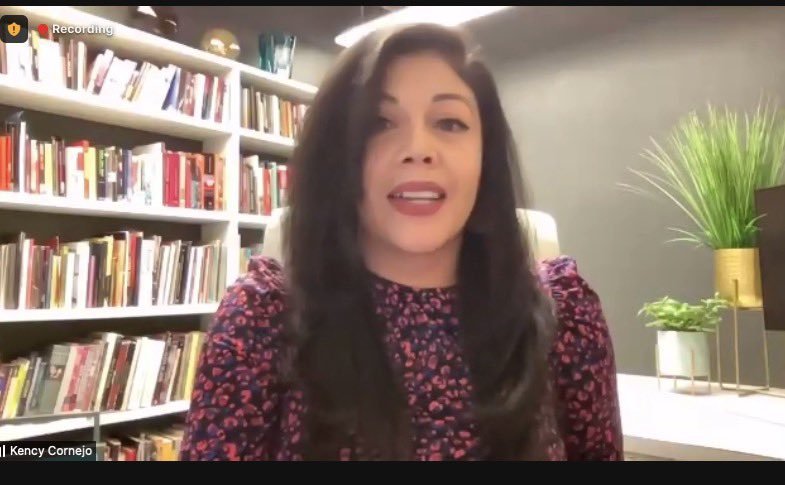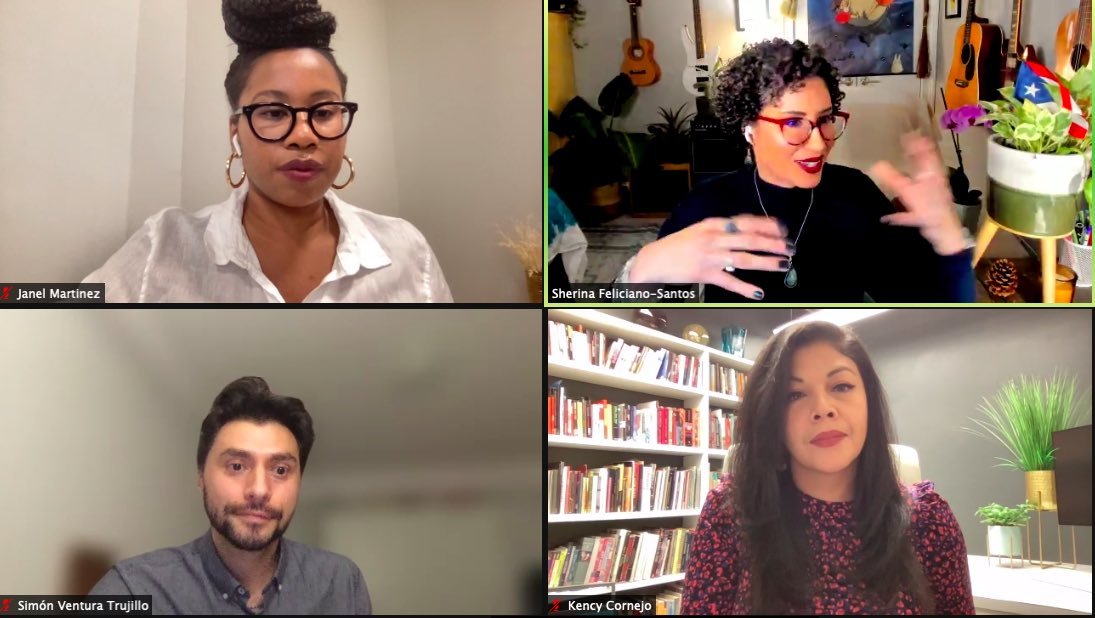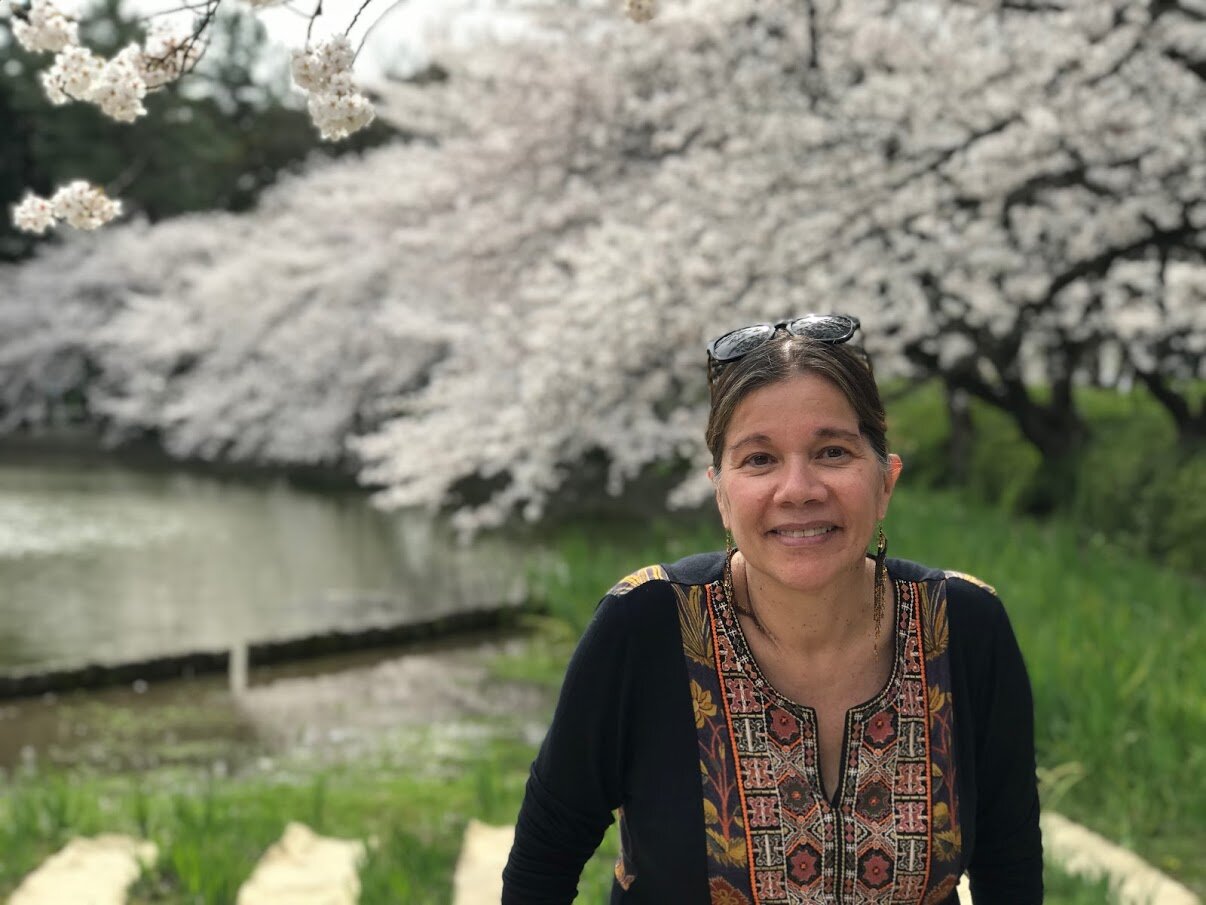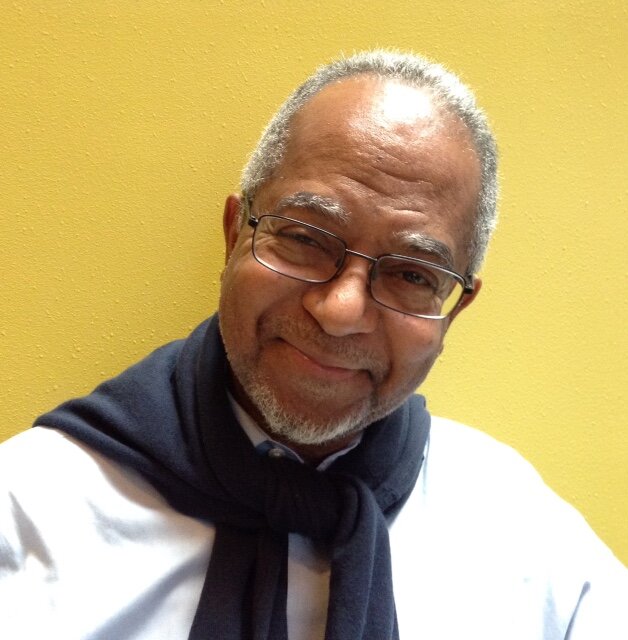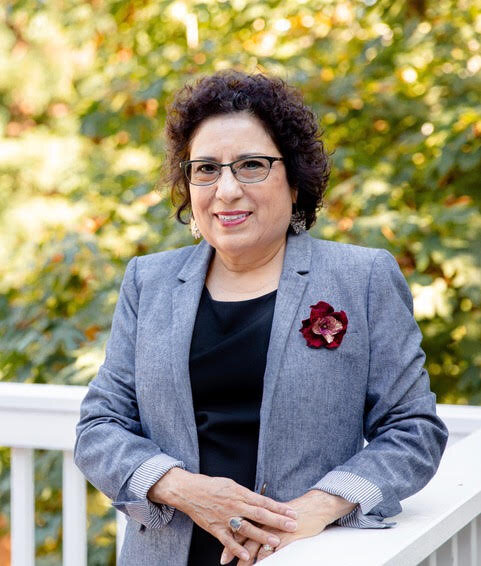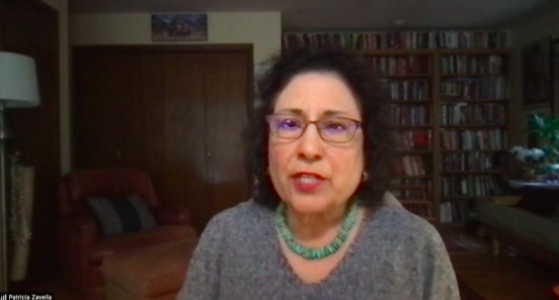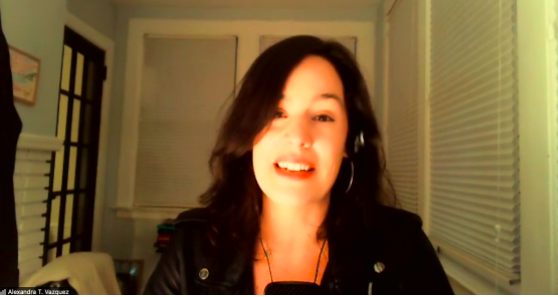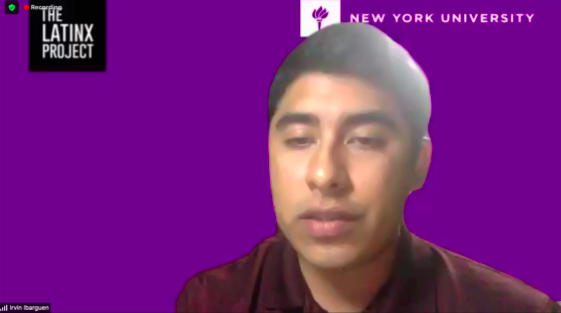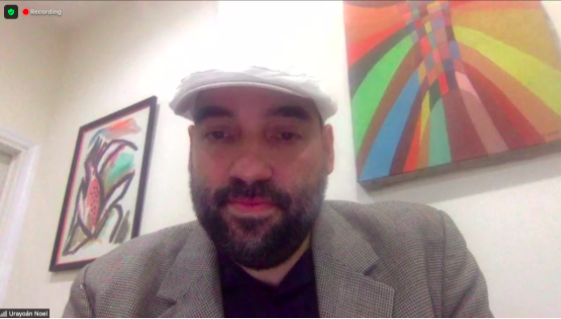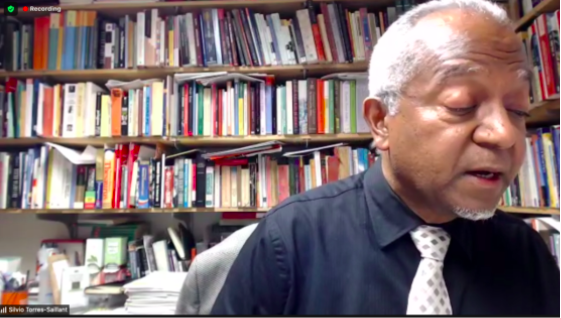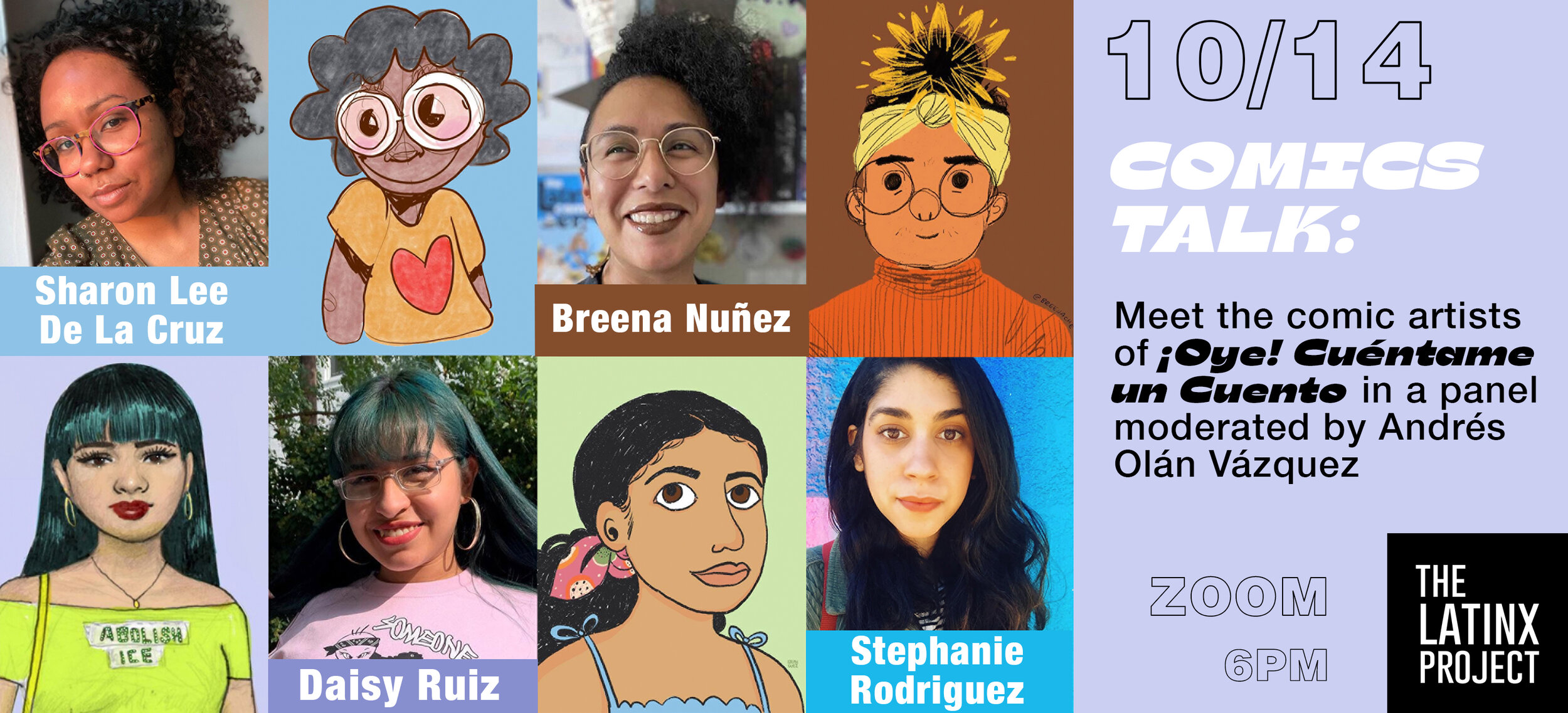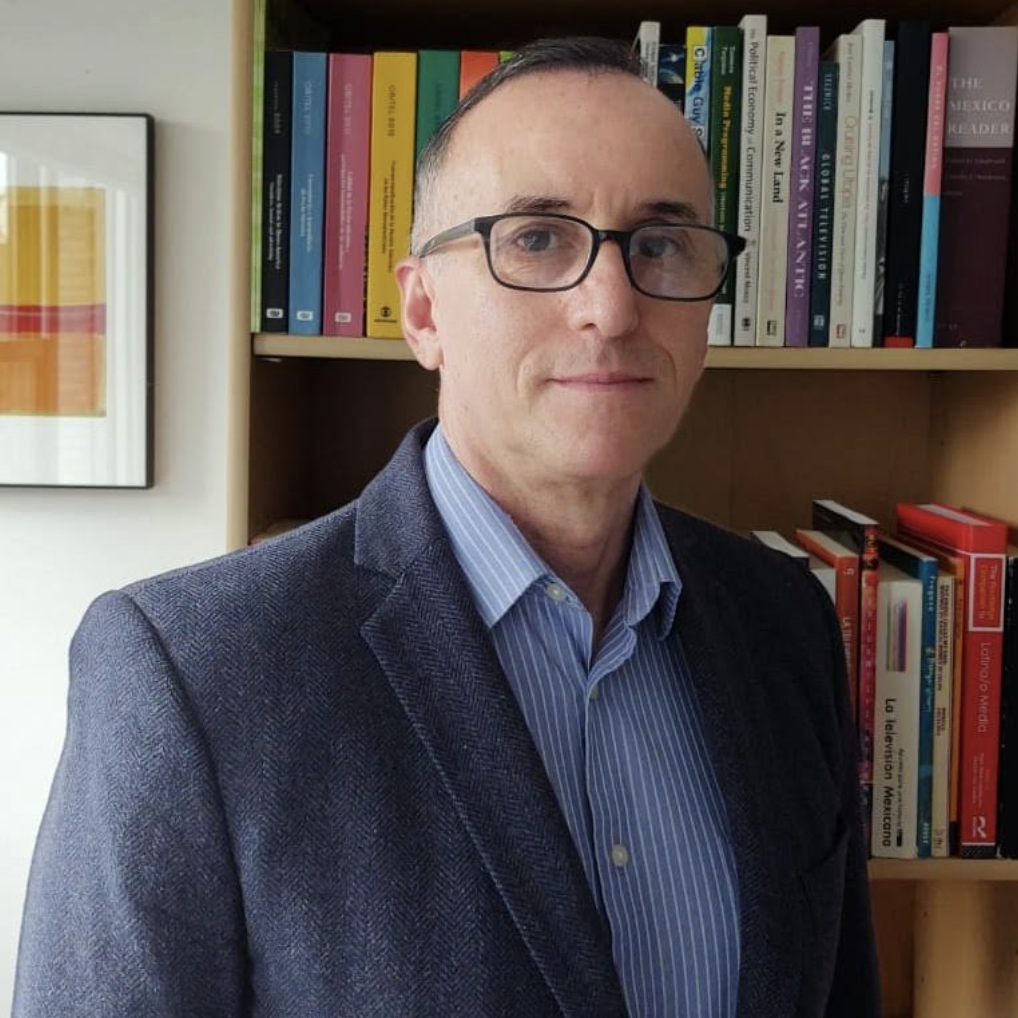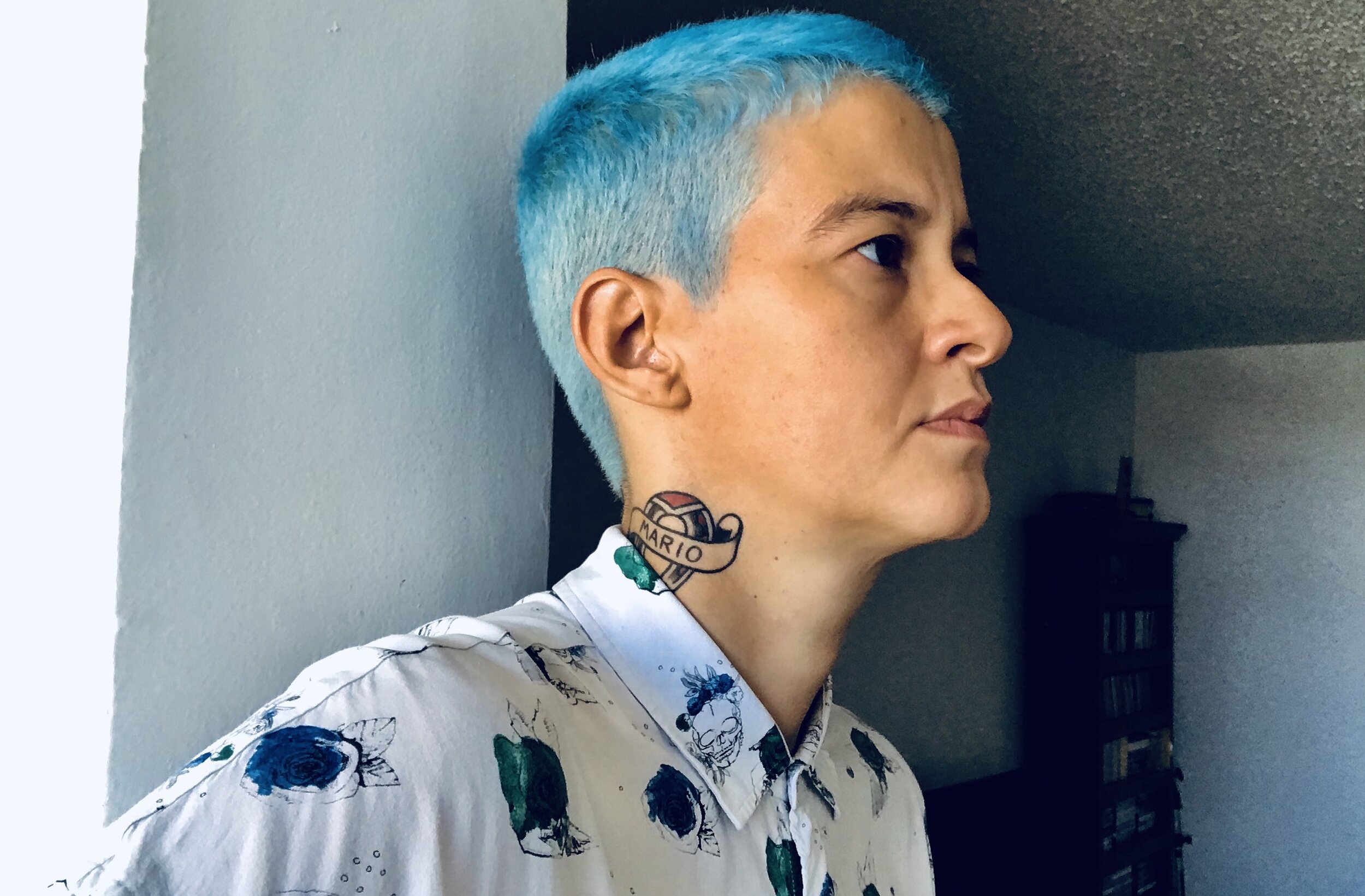
Latinx Studies at NYU Press
Join us as we do a feature of NYU Press books on Latinx Studies; including Ana Y. Ramos-Zayas and Mérida M. Rúa, authors of Critical Dialogues in Latinx Studies; Mary Beltran, author of the forthcoming Latino TV: A History; and Jesica S. Fernández, author of Growing Up Latinx: Coming of Age in a Time of Contested Citizenship.
Speakers
Mérida M. Rúa holds a Ph.D. in American Culture from the University of Michigan and is a faculty member in the Latina and Latino Studies Program at Northwestern University. Her research and teaching focus on the history and politics of communities of color in U.S. cities. Rúa is the author of A Grounded Identidad: Making New Lives in Chicago’s Puerto Rican Neighborhoods (2012) and editor of Latino Urban Ethnography and the Work of Elena Padilla (2010). She is also co-editor of Critical Dialogues in Latinx Studies: A Reader (2021) with Ana Y. Ramos Zayas and a forthcoming (December 2021) special issue of Latino Studies — “The Art of Latina and Latino Elderhood” — with Katynka Z. Martínez. Her current book project, “Migrations to Elderhood,” chronicles the complex and multifaceted lives of older adult Puerto Ricans. Based on four years of qualitative research, including 60 interviews and ethnographic fieldwork, plus analyses of literary, visual, and performance cultures, it offers interdisciplinary insight into how this population navigates, talks about, and makes meaning of their experiences and socio-spatial environments as they grow old.
Ana Y. Ramos-Zayas received her BA in Economics and Latin American Studies from Yale College, and her MA/PhD in Anthropology from Columbia University. She is the author of National Performances: Class, Race, and Space in Puerto Rican Chicago (The University of Chicago Press, 2003; ASA Latino Studies Book Award, 2006) and Street Therapists: Affect, Race, and Neoliberal Personhood in Latino Newark (The University of Chicago Press, 2012; Frank Bonilla Book Award 2010-12). Her most recent book, Parenting Empires: Whiteness, Class, and the Moral Economy of Privilege in Latin America (Duke University Press, 2020), examines the parenting practices of Brazilian and Puerto Rican upper-classes, as these alter urban landscapes; provide moral justifications for segregation, surveillance, and foreign interventions; and recast idioms of crisis, corruption, and austerity according to the dictums of US empire.
Jesica Siham Fernández is an Assistant Professor in the Ethnic Studies Department at Santa Clara University (CA, USA). Trained in social-community psychology, and Latin American & Latinx Studies at the University of California Santa Cruz, her scholarship is grounded in a decolonial feminist praxis and Latinx critical theory. Jesica engages ethnographic and testimonio methodologies, as well as critical PAR paradigms to support Latinx and communities of color in their efforts to actualize liberation, and the creation of thriving living environments. Jesica's research, teaching and organizing work strives toward community thriving, sociopolitical wellbeing, and transformative justice. Jesica is the author of the forthcoming book "Growing Up Latinx: Coming of Age in a Time of Contested Citizenship" (New York University Press), which explores the lives of Latinx youth as they grapple with their social and political identities from an early age as they face an increasingly hostile United States political climate.
Mary Beltrán is an associate professor of Radio-Television-Film and affiliate of Mexican American & Latina/o Studies and Women’s and Gender Studies at the University of Texas at Austin. She is the author of Latina/o Stars in U.S. Eyes: The Making and Meanings of Film and TV Stardom, co-editor of Mixed Race Hollywood, and author of the forthcoming Latino TV: A History.
Event Recap
On December 13th, the Latinx Project hosted a conversation moderated by Arlene Davila and Eric Zinner (Associate Director and Editor-in-Chief, NYU Press) regarding the new and exciting research being released at NYU Press in Latinx Studies. The event sought to highlight the new and cutting edge work being produced and published by scholars who are defining and expanding the field. Present were Mary Beltrán (Author of the forthcoming “Latino TV: A History”), Jesica S. Fernández (Author of “Growing Up Latinx: Coming of Age in a Time of Contested Citizenship”), Ana Y. Ramos-Zayas, and Mérida M. Rúa (Authors of “Critical Dialogues in Latinx Studies”). Our contributors spoke on a diverse array of topics spanning the legacies of latinx representation both in television media and within writer’s rooms, the different ways latinx youth are barred from yet still manage to find ways to engage in cultural citizenship, as well as the need for Latinx scholars of different eras to engage in intergenerational conversations that have the potential to expand and fortify the field. Additionally our panel discussed the need for more Latinx inclusion and representation in the publication industry, the new digital and alternative modes of sharing and disseminating data and research, as well as tips for new Latinx scholars to pursue publication.
For more, watch recording below!

Digitizing Race, Pt. 2: An Exploration of Identity On Social Media
Our one-day symposium Digitizing Race: Making Latinxs in the 21st Century explored how Latinx people navigate the digital realm and the issues at play when they are turned into data, as well as what could be learned about contemporary racism by examining these processes.
As we continue our discussion, we’ve invited activists, content creators, and scholars to discuss key issues at stake at the intersection of social media and Latinx identity, including how identity is constructed, performed and examined on social media platforms; the ways digital technology is used to tell new stories through cultural production and archiving; as well as the role that technology companies play in the surveillance and oppression of Latinx people.
Speakers
Ashley Crooks-Allen (They/Them) is a Sociology Ph.D. candidate at the University of Georgia, where they focus on Black immigrant identity and social movements. Their dissertation is titled, “Mestizaje Undone: A Qualitative Social Media Analysis of Afro-Latinx Identity & Social Movements.” This work takes a qualitative approach to understanding how Afro-Latinx people use social media to make identity claims in relation to the Black Lives Matter Movement. Their master's research, also at the University of Georgia, focused on Afro-Caribbean Identity & Experiences with the Black Lives Matter Movement in Georgia. They also completed a graduate certificate in Women’s and Gender Studies. They graduated from Emory University with a major in creative writing and a minor in sociology. While at Emory, they were a Mellon Mays Undergraduate Fellow. They are from Irvington, NJ and are of Afro-Costa Rican descent. What happens when Afro-Latinx people enter the U.S. context with completely different notions of race? Their interest in Black migratory identity formation came from living the effects of their parents migrating to the U.S. and settling into Black prescribed spaces. In conjunction with academia, they also devote time to spoken word poetry and activism.
Eduard Arriaga is an Assistant Professor in the Department of Global Languages and Cross-Cultural Studies at University of Indianapolis. He holds a PhD in Hispanic Studies and Migration Studies from Western University (Canada). His teaching and research revolve around issues of race/ethnicity and digital production, digital humanities and knowledge production, and Afro-Latinx and Afro-Latin American cultural production. He is the author of several books and articles. His most recent book is Afro-Latinx Digital Connection (University Press of Florida 2021), a co-edited volume published with Andrés Villar.
Jacinta González is a senior campaign organizer at Mijente and an expert in organizing against Big Tech companies’ involvement in immigration enforcement and criminalization of Latinx and immigrant communities.
Marcel Rosa-Salas is a visiting scholar and The Latinx Project’s Media and Cultural Politics Fellow. A cultural anthropologist and documentary filmmaker from Brooklyn, NY. Her research centers on the racial politics of American advertising and consumer culture. Her forthcoming book, under contract with Duke University Press, explores the business of racially targeted marketing in the U.S, and the role of racial theories in the creation of ad campaigns. Her research has been supported by the Ford Foundation and Wenner Gren Foundation. Marcel co-hosts the Top Rank Podcast with Isabel Flower, and together they are also co-editors of the forthcoming book Documenting the Nameplate, a deep-dive into the cultural phenomenon of nameplate jewelry, which will be published with Penguin Random House in Fall 2022.
Gabriella Torres & Ali Rosa-Salas are co-editors of Nuyorican Mag, a digital storytelling platform founded by Torres in 2018 and joined by Rosa-Salas in 2020. Grounded in research from institutional and personal collections, Nuyorican Mag shares rarely-seen archival photos and videos that amplify the social, political, and cultural innovations by New Yorkers of Puerto Rican descent.
Event Recap
On December 8th, The Latinx Project invited scholars to discuss the ways in which social media, technology, and digital infrastructures have to come to be important sites for scholars to understand new horizons in archive building, community organizing and solidarity building, and the creation of new and diverse identities that combat the erasure and homogenization within the Latinx community. Moderated by Media and Cultural Politics Fellow Marcel Rosa-Salas, the discussion traced a number of key considerations in examining new modes of Latinx identity production and the contestation of processes of digital abstraction and reduction. Additionally, this conversation highlighted the need to adapt to the constantly evolving digital modes that are and have been forming, including the reclamation of data from Data brokers. We thank Ashley Crooks-Allen, Professor Eduard Arriaga, Jacinta González, Gabriella Torres, and Ali Rosa-Salas for their robust contributions to the field, as well as for coming together to share their important thoughts on the intersections of digital technology, race, archival work, and the production of counter spaces that afford novel forms of resistance and movement.
For more, watch the recording below!

Critical Latinx Indigeneities Forum
The second annual forum on Critical Latinx Indigeneities features scholars whose research on Indigenous Latinx cultural politics pushes the boundaries of Latinx, Latin American, Indigenous, and Black studies to provide innovative analyses of race, gender, capital, and power in the contemporary moment. Their research points to the different ways that this field is challenging settler colonial logics of Native erasure, antiblackness, and migrant precarity while advancing transnational conceptualizations of solidarity, decolonization, and Indigenous continuance.
This event will be moderated by The Latinx Project events specialist Janel Martinez, whose writing centers Black Indigenous, more specifically Garifuna, existence.
This event is co-sponsored by the Native Studies Forum.
Panelists
Kency Cornejo is an Associate Professor of Contemporary Latin American Art History at the University of New Mexico. Her teaching, research, and publications focus on contemporary art of Central America and its US-based diaspora, art and activism in Latin/o America, and decolonizing methodologies in art. Some of her publications can be in the Journal of Latin American and Latinx Visual Culture; Journal of Commonwealth and Postcolonial Studies; Aztlán: A Journal of Chicano Studies; Art and Documentation; FUSE Magazine; and Oxford Research Encyclopedia of Literatures, among others. Her work has been supported by the Fulbright and Ford foundations, a Creative Capital | Andy Warhol Foundation Arts Writers Grant, and in 2020 was awarded a National Endowment for the Humanities (NEH) Faculty Award Grant.
Sherina Feliciano-Santos is an Associate Professor of Anthropology and Linguistics at the University of South Carolina, Columbia. Trained as a linguistic and sociocultural anthropologist, her research is committed to the nuanced study of the relationship among language, identity, history, and social action among differently racialized groups and persons. She attends to the different scales of racialization and ethnicization processes involved in structuring identification and power in her research on Indigenous cultural reclamation in Puerto Rico, on traffic stop arrests and policing in the U.S. South, and on migration, citizenship, race, and ideologies of language and the nation among Puerto Ricans in Puerto Rico, St. Croix, and the United States. She is the author of A Contested Caribbean Indigeneity (2021) published in the Critical Caribbean Studies series at Rutgers University Press.
Simón Ventura Trujillo is an Assistant Professor of Latinx Studies in the English Department at New York University. His book, Land Uprising: Native Story Power and the Insurgent Horizons of Latinx Indigeneity (University of Arizona Press, 2020), explores Indigenous land reclamation to rethink connections between Native storytelling practices and Latinx racialization across overlapping colonial and nation-state forms. It centers on the cultural production of the New Mexican land grant reclamation movement, La Alianza Federal de Mercedes. A formative organization of the Chicanx movement known for its armed raid of the Tierra Amarilla courthouse in 1967, La Alianza waged a dynamic and controversial campaign for the recovery of Mexican and Spanish land grants that had been lost in the aftermath of the Mexican-American War in the mid-19th century. This book situates La Alianza’s writings alongside a heterogeneous archive of Indigenous and feminist borderland literature by Leslie Marmon Silko, Ana Castillo, Simon Ortiz, and the Zapatista Uprising in Chiapas, Mexico. In doing so, his work explores unexamined intersections between Indigenous, Chicanx, and Latinx cultural politics and contributes to critiques of colonial modernity and settler sovereignty in the Americas. Professor Trujillo teaches courses on Latinx Studies, American ethnic literatures, 20 th century literature and culture, intersectional theories of race, indigeneity, and decolonial social movements. His pedagogy engages the practices of textual analysis, writing, and collaborative research to study how the social construction of identity—including race, gender, sex, class, and nationality— occur as a function of language. His students explore how work on language generates alternative identities, histories, and spatial imaginaries that resist historic forms of oppression and inequality.
Image featured on 'A Contested Caribbean Indigeneity: Language, Social Practice, and Identity within Puerto Rican Taíno Activism' by Sherina Feliciano-Santos
Event Recap
On November 9th, the Latinx Project had the honor to host the second annual forum on Critical Latinx Indigeneities. The forum featured scholars whose research in the field is not only challenging settler colonial logics, Mestizaje, migrant precarity, erasure, and anti-Blackness. Professors Kency Cornejo, Sherina Feliciano-Santos, and Simón Ventura Trujillo are also thinking about and engaging with communities and artists on how Indigeneity is being reclaimed, visibilized, and celebrated. Professor Kornejo pointed us to the work of Indigenous artists like Sandra Monterroso (Maya-Q’ekchi), Marilyn Boror Bor (Maya-Kaqhickel), and Edgar Calel (Maya-Kaqhickel). Professor Feliciano-Santos referenced her work with Indigenous Puerto Rican communities in NYC and Professor Ventura Trujillo shared a little bit about his own journey learning about his family while in graduate school and recommends reading Almanac of the Dead by Leslie Marmon Silko. This cohort of phenomenal scholars inspires us to continue thinking about who gets to (re)claim Indigeneity and how this comes to be. We thank them for their work in carving new spaces to think critically about Latinx Indigeneities.
For more, watch the recording below!
Left to Right: Sherina Feliciano-Santos, Kency Cornejo, Simón Ventura Trujillo, and Janel Martínez on top left image.

Latinx at 50: At the Vanguard of Ethnic Studies
Join us as we celebrate, reflect and uplift the 50th anniversary of Latinx Studies. During part one of this two-part symposium, our distinguished faculty alongside pioneers and field-shaping scholars discuss Latinx Studies’ far-reaching legacy.
This event is co-sponsored by the Center for the Study of Gender and Sexuality (CSGS).
Panelists
Frances R. Aparicio is Professor Emerita at Northwestern University, where she taught in the Department of Spanish and Portuguese and served as Director of the Latina and Latino Studies Program for eight years. She has previously taught at Stanford University, University of Arizona, University of Michigan, and University of Illinois at Chicago. Her research interests include Latina and Latino literary and cultural studies, the cultural politics of U.S. Latino/a languages, Latino/a popular music and dance, literary and cultural translation, cultural hybridity, transnationalism, Latinidad, and mixed Latino/a identities. She is author of the award-winning Listening to Salsa: Gender, Latin Popular Music and Puerto Rican Cultures (Wesleyan 1998) and more recently, in 2019, of Negotiating Latinidad: Intralatina/o Lives in Chicago (University of Illinois Press). She has co-edited various critical anthologies, including Tropicalizations: Transcultural Representations of Latinidad (University of New England Press, 1997), Musical Migrations (Palgrave, 2003), Hibridismos culturales (Revista Iberoamericana, 2006), and the Routledge Companion to Latino/a Literature (2013). A founding editor of the Latino Studies Journal, she also initiated the Latinos in Chicago and the Midwest Book Series at the University of Illinois Press, to foster book publications and new research on Latinx in the Midwest. She is currently writing a book about Marc Anthony’s most canonical songs as sites for critical reflections on identity, colonialism, race, and global solidarities.
Dr. Virginia Sánchez Korrol, a historian and creative writer, holds a Doctorate from the State University of New York at Stony Brook. Throughout an extensive academic career, she has documented the Puerto Rican and Latino experience in U.S. History focusing primarily on community development and women’s diverse roles from the 19th century to the present. In 1978 she joined the faculty of the Puerto Rican Studies at Brooklyn College, and published From Colonia to Community: The History of Puerto Ricans in New York City, breaking new ground in the emerging field. Among her publications the award-winning Latinas in the United States: A Historical Encyclopedia, co-edited with Dr. Vicki L. Ruiz, became the first scholarly collection to detail the lives of America’s Latinas from 1565 to 1960. Dr. Sánchez Korrol serves on the Center for Women’s History’ Scholars Advisory Board at New York Historical Society, and on the Board of Directors of Arte Público’s Recovery Project. She received the 2020 Herbert H. Lehman Prize for Distinguished Service to New York History, and was historical consultant for the Spielberg and Kushner 2021 West Side Story.
Silvio Torres-Saillant is Professor of English and Dean's Professor of the Humanities at Syracuse University, where he held the William P. Tolley Distinguished Teaching Professor in the Humanities, directed the Latino-Latin American Studies Program, and co-founded La Casita Cultural Center. Founder of the CUNY Dominican Studies Institute at The City College of New York, he serves on the Editorial Board of the University of Houston's Recovering the US Hispanic Literary Heritage Project and on the Advisory Board to the Molina Family Latino Gallery scheduled to open in 2022 at the National Museum of American History, while serving as Associate Editor of the Palgrave journal Latino Studies. His books include Caribbean Poetics: Toward an Aesthetic of West Indian Literature (1997; 2013); The Dominican Americans (1998, with Ramona Hernandez) and The Once and Future Muse: The Poetry and Poetics of Rhina P. Espaillat (2018, with Nancy Kang).
Patricia Zavella is an anthropologist who received her Ph.D. from the University of California, Berkeley. She is Professor Emerita of Latin American and Latino Studies at the University of California, Santa Cruz. She has published extensively in Chicanx-Latinx studies and feminist studies on issues related to poverty, family, sexuality, work, transnational migration, and social activism. Her latest book is The Movement for Reproductive Justice: Empowering Women of Color Through Social Activism (New York University Press, 2020).
NYU Faculty who will be in conversation with our esteemed speakers include:
Cristina Beltrán is an Associate Professor in the department of Social & Cultural Analysis at New York University. A political theorist by training, her research focuses on modern and contemporary political theory, Latinx and U.S. ethnic/racial politics, feminist and queer theory. She is author of The Trouble with Unity: Latino Politics and the Creation of Identity (Oxford University Press, 2010), which received numerous awards, including the American Political Science Association’s Ralph Bunche Award and the Casa de la Américas prize for the best book on Latinos in the United States. Her new book, Cruelty as Citizenship: How Migrant Suffering Sustains White Democracy was published in 2020 with the Forerunner Series at the University of Minnesota Press.
Irvin Ibarguen is a historian of the Americas, with interests in migration, transnational phenomena, and government policies to regulate these. His book project—Faucet Politics: The Fight for Mexico’s Migratory Flows, 1940-1970—rescues the history of businesses, politicians, peasants and other people in Mexican society who opposed large-scale Mexican migration to the U.S. and sought to orchestrate the movement of Mexican people more fruitfully within Mexico. His writing has received the support of the Mexican Government’s Ministry of Foreign Affairs, the Harvard Weatherhead Center for International Affairs, the Charles Warren Center for Studies in American History, and the David Rockefeller Center for Latin American Studies. At New York University, he teaches courses on Latino/a history, the spatial turn, and modern American history.
Urayoán Noel is the author of In Visible Movement: Nuyorican Poetry from the Sixties to Slam (University of Iowa Press) and eight books of poetry, including Buzzing Hemisphere/Rumor Hemisférico and Transversal, both with the University of Arizona Press. As a translator of Latin American poetry, he has been a finalist for the National Translation Award and the Best Translated Book Award. His international performances include Poesiefestival Berlin, Barcelona Poesia, and the Toronto Biennial of Art, and his work has been selected for exhibition at the Museum of the City of New York, the Museo de Arte de Puerto Rico, and Taller Boricua. Originally from Río Piedras, Puerto Rico, Noel lives in the Bronx and teaches at New York University.
Alexandra T. Vazquez’s research and teaching interests focus on music, U.S. Latina/o and Latin American Studies, Caribbean aesthetics and criticism, race and ethnicity, and feminist theory.
Her book, Listening in Detail: Performances of Cuban Music (Duke University Press 2013), won the American Studies Association’s Lora Romero Book Prize in 2014. Her work has been featured in such journals as small axe, American Quarterly, Social Text, women and performance, and the Journal of Popular Music Studies; and in the edited volumes Nonstop Metropolis: A New York City Atlas, Reggaeton, and Pop When the World Falls Apart. Prior to coming to NYU, Vazquez was an Assistant Professor in the Department of English and Center for African American Studies at Princeton University (2008-2015) and a Postdoctoral Associate in the Program in Ethnicity, Race, and Migration at Yale University (2006-2008).
Her latest book project The Florida Room is forthcoming from Duke University Press.
Event Recap
On September 22nd, The Latinx Project celebrated the 50th anniversary of Latinx Studies, a journey made possible by the courage, contributions, and care of these distinguished scholars: Frances R. Aparicio, Virginia Sánchez Korrol, Silvio Torres-Saillant, and Patricia Zavella. We thank them for paving the road to the field today and for joining us in commemorating half a century of Latinx Studies, both its humble origins and accomplishments. As we continue developing and transforming the field, we are encouraged by Professor Korrol to “stop and reflect so we can understand what we have accomplished and what remains to be done.” Latinx Studies was born out of student demands, out of our absence in academia, and we must remember this en-route to a century of it. Today, we can learn about our peoples in academia because of demands made by students and scholars, as Professors Aparicio and Torres-Saillant shared with us. We honor the origins of the field and also acknowledge that there is much to do. Professor Zavella thus moves us towards an enlightening listening practice so that we can transform not just Latinx Studies, but other fields in academia.
For more, watch the recording below!
Left to Right: Cristina Beltrán, Patricia Zavella, Alexandra T. Vazquez, Frances R. Aparicio, Irvin Ibarguen, Dr. Virginia Sánchez Korrol, Urayoán Noel, and Silvio Torres-Saillant.

Comics Talk: Meet the Comics of "¡Oye! Cuentame un Cuento"
Get to know the Comics of our latest exhibition ¡Oye! Cuentame un Cuento in a ZOOM panel moderated by Anthropology PhD candidate Andrés Olán Vázquez. Make sure to check out the virtual exhibition, through December 3rd 2021, for a closer look at works by Sharon de La Cruz, Breena Nuñez, Daisy Ruiz, and Stephanie Rodriguez.
MODERATOR
Andrés Olán Vázquez is a PhD student of social and visual anthropology at NYU. Born and raised in Puerto Rico, his work focuses on Latinx cultural producers in the mainstream and independent US comic book industries. His interests include race and visual culture; production and consumption, and media studies.
RECAP
Thanks to all who joined our Comics Talk with Sharon Lee De La Cruz, Breena Nuñez, Daisy Ruiz, and Stephanie Rodriguez moderated by Andrés Olán Vázquez. The talk started with an intro to the value of comics in telling autobiographical stories that transend pop-cultural notions of the super-hero. Andrés posed individualized questions which dove into each panelists motivation to create/current projects, from Breena - discussing the inspiration of Persepolis on considering visual story-telling to the bleak history of U.S. funded comics in an attempt to dismantle foreign governments, Daisy - depicting relatable fashion for Latinx visibility from the Bronx and beyond, Sharon - breaking down the symbolism of Water in her comics as a means of connecting to their ancestors, and Stephanie - spilling the tea on the comics industries stark inequities and need for valuing femme bipoc voices. We hope you enjoy the recording below!

Latinx Art Wikipedia Edit-a-Thon
In recognition of Latinx Heritage Month, this event is a collaboration between NYU Libraries and the Latinx Project at NYU, with support from Wikimedia NYC, who will train you to contribute to Wikipedia, Wikidata, and Wikimedia Commons. Wikipedia edit-a-thons have emerged as a powerful tool for communities that are underserved by the lack of diversity among Wikipedia content editors—the Latinx community being no exception.
Instructions
To come prepared, create an account ahead of time here at Create a Wikipedia Editor Account. (Pseudonyms are encouraged, as is an email for password recovery.) Volunteers will also be available on Zoom and happy to help you create an account.
All attendees are subject to Wikimedia NYC’s Code of Conduct.

Streaming Culture: The Impact of Latinx and Latin American Content
Over the last several years, streaming giants like Netflix and HBO Max have taken an active interest in diversifying their programming. For Latinx and Latin American audiences, the attempts have generated mixed reviews and questions on what authentic storytelling entails. Moderated by Juan Piñon, Associate Professor of Media, Culture, and Communication at NYU Steinhardt, the panel will discuss the business of streaming Latinx and Latin American stories.
This event is co-sponsored by the Department of Media, Culture, and Communication (MCC).
Speakers
Alejandro J. Rojas serves as Director of Applied Analytics at Parrot Analytics based in New York. In his current role, he oversees initiatives that transform data into insights at every step of the content lifecycle. Alejandro is a former McKinsey consultant who went on to become an executive producer on multiple TV series in his native Venezuela. He's earned advanced degrees from MIT and UC Berkeley and is a current member of the International Academy of Television Arts and Sciences.
Ariana Case is the program administrator at the Annenberg Inclusion Initiative. She received her B.A. in Communication from the Annenberg School for Communication and Journalism at USC. Since her days as an undergraduate, Case has conducted research with the Annenberg Inclusion Initiative on diversity and inclusion across the entertainment industry. As a senior researcher on Dr. Stacy L. Smith’s team, Case has been at the forefront of championing authentic storytelling, including for the Latinx and Latin American community in the 2019 Report — Latinos in Film: Erasure On Screen and Behind the Camera Across 1,200 Popular Movies. Case is a co-author on this in-depth examination of the prevalence and portrayal of Latinos in popular films and is currently leading the research in a follow-up analysis.
Most recently, Case co-authored Inclusion in Netflix Series & Films: 2018-2019, a report commissioned by the streaming company to examine inclusion on-screen and behind the camera in scripted content. In addition to her ongoing efforts promoting diversity in media, Case has also acquired experience working in cable television and in the nonprofit sector, has an avid interest in the interaction of American pop culture with society at large, and is a lifelong Southern Californian.
Carmen Phillips is the Editor-in-Chief at Autostraddle. She is a Black Puerto Rican femme/inist writer with a PhD in American Studies from New York University. Phillips claims many past homes, but left the largest parts of her heart in Detroit, Brooklyn, and Buffalo, NY.
Juan Piñon is an Associate Professor of Media, Culture, and Communication at NYU Steinhardt. He's particularly interested in the intersection of Latin American transnational media corporate dynamics with the established mode of production of U.S. Latino media and the effects on Latinos' representations. His research interests are globalization, political economy, television studies and social and cultural practices. Currently, he is the U.S. coordinator of the Ibero-American Television Fiction Observatory (OBITEL) an international research project on television fiction. He has also contributed to an ongoing project about new technologies and media appropriation within disempowered communities in Austin, Texas project in which his particular interests lie in the immigrant Hispanic community's life trajectories and strategies of social mobility. Pinon's work experience dates back to the early eighties, when he first worked as a television producer in Mexico City, to become later on the Manager of Programming and Production at a regional television channel in Chihuahua, Mexico. His experience in academic institutions includes working as the Director of the Media Center at the Instituto Tecnolo y de Estudios Superiores de Monterrey, in Mexico City, where he was also Assistant Professor in the Department of Communication from 1994 to 2002. He holds a Ph. D. in Media Studies from the Department of Radio, Television and Film from the University of Texas at Austin, and a master degree in Communication Sciences from the Universidad Iberoamericana in Mexico City.
Click below to watch Streaming Culture: The Impact of Latinx and Latin American Content!

A Charla With Rita Indiana
A virtual charla, or chat, between writer and musician Rita Indiana and Carlos Chirinos, Director of the NYU Steinhardt School’s Music and Social Change Lab and Clinical Music and Global Public Health Associate Professor with the NYU School of Global Public Health. The discussion centers on the multi-disciplinary artist’s career trajectory and what sparked her return to music after a decade-long hiatus; how her music unpacks feminism, gender, migration and Dominican identity; and what’s next creatively for Indiana’s career.
This event is co-sponsored by the Hemispheric Institute and Center for Latin American and Caribbean Studies (CLACS).
Rita Indiana is a Dominican-born New York-based music composer, and a key figure in contemporary Latinamerican literature; Tentacle won the Grand Prize of the Association of Caribbean Writers in 2017, the first Spanish-language book to do so. She is the author of five novels and is a driving force in experimental Caribbean popular music. She writes about outsiders in possible and impossible worlds and teaches storytelling to people of all ages and backgrounds.
Carlos Chirinos’ work explores innovation and creativity in emerging global music industries, looking at the role of music in public health, international development and social change. He has been a key consultant for radio and music projects in Europe, Africa and Japan, with funding from the World Bank, USAID, IDRC, the Wellcome Trust and Toyota Foundation. Carlos is the Director of the NYU Steinhardt School’s Music and Social Change Lab and Clinical Music and Global Public Health Associate Professor with the NYU School of Global Public Health.
Click below to watch A Charla With Rita Indiana!

¡Oye! Cuéntame un Cuento (Exhibition)
¡Oye! Cuéntame un Cuento, organized by The Latinx Project in collaboration with Stephanie Rodriguez, is an exhibition featuring four Latinx illustrators exploring biographical comics through the lens of Adversity, Community, and Oral Tradition. Artists Sharon Lee De La Cruz, Breena Nuñez, Daisy Ruiz and Stephanie Rodriguez bring a much needed spotlight to the Latinx lived experience, with their investment in visual storytelling.
Oral Tradition is an integral part of the Latinx community. It starts in childhood when children beg their elders “Cuéntame un Cuento”, or the cuentos are given anyway. We pass down these cuentos for generations, and with time, modifications are made for entertainment's sake. Often taking an autobiographical approach, these creators navigate gender, queerness, migratory displacement, and ethno-racial identities in a format that has historically underrepresented femme and non-white voices. ¡Oye! Cuéntame un Cuento brings these barrier-breaking comics to the limelight.
Breena Nuñez, La Matriarca (2018)
Daisy Ruiz, Built Like SpongeBob (2021)
Sharon Lee De La Cruz Wild Seed (2021)
Stephanie Rodriguez Stories From The Boogy Down: A Bronx Summertime Tradition (2019)
ARTISTS
Sharon Lee De La Cruz is a multi-disciplinary artist and activist from New York City. Her thought-provoking pieces address a range of issues related to tech, social justice, sexuality, and race. De La Cruz’s work ranges from comics, graffiti, and public-art murals to more recent explorations in interactive sculptures, animation, and coding. She graduated with a BFA from Cooper Union and a MPS from NYU-ITP. She is the recipient of a Fulbright Fellowship, Processing Foundation Fellowship, and a Tin House Summer Workshop participant.
Breena Nuñez is an Afro-Guatemalan-Salvadoran cartoonist living in San Francisco, CA. She creates diary comics that often explore themes surrounding the awkwardness of racism, being a queer Afrodescendiente from the Bay Area, and understanding what it means to be Central American from the US. Their hope as a cartoonist & educator is to help BIPOC folks give themselves permission to express their personal stories through the language of comics.
Breena’s comics are primarily self-published as zines, but you will also find some comics in publications such as The New Yorker: Daily Shouts and The Nib, as well as anthologies like Tales From La Vida: A Latinx Comics Anthology, Drawing Power (Eisner Award Winner 2020), and Be Gay, Do Comics! (Ignatz Award Winner 2020).
Daisy Ruiz, better known online as @Draizys, is a Bronx-bred Illustrator, Founder and Creative Director of award-winning compilation zine Deadass Tho NYC, and a one-third of WOC art Collective Spicy Mango Comics. Her illustrations take inspiration from her 5 year-long Scene phase, her East Coast Chicana upbringing, and everyday NYC living, just to name a few.
Stephanie Rodriguez is a Bronx-born comic book artist and illustrator. She graduated from the School of Visual Arts in 2011 with a BFA in Illustration. Stephanie creates illustrations and self-published comics depicting the highs and lows of everyday life. Stephanie's work has been featured on BuzzFeed, Remezcla, Vayner Media and Michigan Radio (NPR). Her debut young adult graphic novel is set to publish in Spring 2023 by Kokila, an imprint of Penguin Random House.
Exhibition Tour
We kicked off #LatinxHeritageMonth with the opening of "¡Oye! Cuéntame un Cuento", our latest exhibition featuring Latinx illustrators Daisy Ruiz, Breena Nuñez, Sharon Lee De La Cruz, and Stephanie Rodriguez. Watch Stephanie's exhibition tour below to learn more about the artists and what you can hope to see online and in-person.

My 28 Kitchens: Mapping My Food History
The kitchen is the hearth of the home; a convening space laden with memories that spring beyond the physical location, because the smells and flavors created there can themselves come to symbolize home. For Von Diaz, migration from the Caribbean coupled with family instability led to a life in transition; many homes, many kitchens; shifting tectonic plates of adaptation where meaning and identity were formed. In this talk, she’ll explore the 28 kitchens she’s had in her life—how tools, recipes, and techniques are archives of culture, and how kitchens are liminal spaces that enable us to bring home with us wherever we go.
This event is hosted by NYU Institute of African American Affairs (IAAA) & Center for Black Visual Culture (CBVC) and co-sponsored by The Latinx Project, the 370J Project and the Department of Photography and Imaging at Tisch School of the Arts.
Speaker
Von Diaz is a writer, documentary producer, and author of Coconuts & Collards: Recipes and Stories from Puerto Rico to the Deep South.
Born in Puerto Rico and raised in Atlanta, GA, she explores food, culture, and identity. Her cooking and culinary research focus on Caribbean foodways, and adapting traditional dishes to modern recipes. In addition to her debut culinary memoir, she has contributed recipes and essays to several cookbooks and anthologies, including Diana Henry’s From the Oven to the Table, Julia Turshen’s Feed the Resistance, Charlotte Druckman’s Women on Food, and Joe Yonan’s America The Great Cookbook, among others. Her forthcoming narrative cookbook, Islas: Cuisines of Resilience (Chronicle 2023) explores the ancestral cooking techniques, shared ingredients, postcolonialism, and environmental vulnerability that connect warm weather islands across the globe. Her work is featured in the New York Times, The Washington Post, Bon Appétit, NPR, Food & Wine Magazine, Eater, and Epicurious. She has also been a reporter for NPR, StoryCorps, The Splendid Table, WNYC, PRI’s The World, The Southern Foodways Alliance, Colorlines, and Feet in 2 Worlds.
In addition to food journalism, she has also worked for a number of institutions dedicated to storytelling, arts and culture, and social justice. She teaches food studies and oral history at the University of North Carolina, Chapel Hill. Previously, she was the Lehman Brady visiting scholar at the Center for Documentary Studies at Duke University. She is an Editor and Radio Producer at StoryCorps, where she produces radio broadcasts for NPR’s Morning Edition, and contributed dozens of interviews to the organization’s vast oral history archive in the Library of Congress. Before arriving at StoryCorps, she was the Editor of Feet in 2 Worlds, which brings the work of immigrant and ethnic media journalists from communities across the U.S. to public radio and the web. Formerly, Von served as the Marketing and Communications Manager for El Museo del Barrio, a celebrated Puerto Rican and Latino museum and cultural institution in New York City. In addition to her teaching and journalistic work, she was a story producer at Google Brand Studio where she led research strategy and story development for documentary films, animated shorts, and podcasts. Her leadership roles include the African Cuisine Advisory Council at the Culinary Institute of America (CIA), and the Board of Directors for the Center for Documentary Studies at Duke University.
She is a frequent public speaker, and in 2015 she gave the TEDx talk, “Every Dish Has a Story: Mapping My Food History,” exploring how cooking and eating reflect our deepest cultural roots. She’s also taught writing and audio production workshops at New York University and The New School, among others.
Von received a B.A. in Women’s Studies from Agnes Scott College. She went on to receive a dual M.A. in Journalism and Latin American and Caribbean Studies from New York University, where she completed a Tinker Field Research Fellowship to record the oral histories of elder LGBTQ communities in Havana, Cuba.


